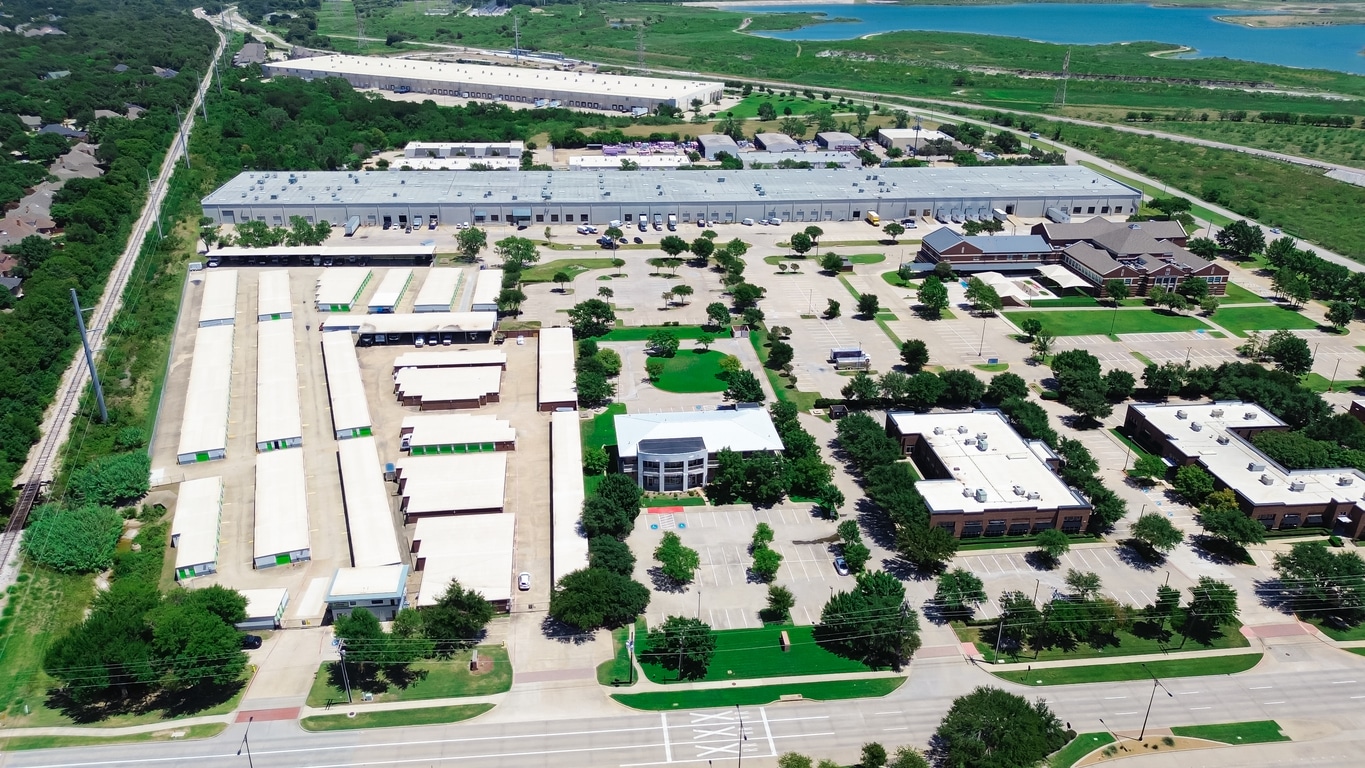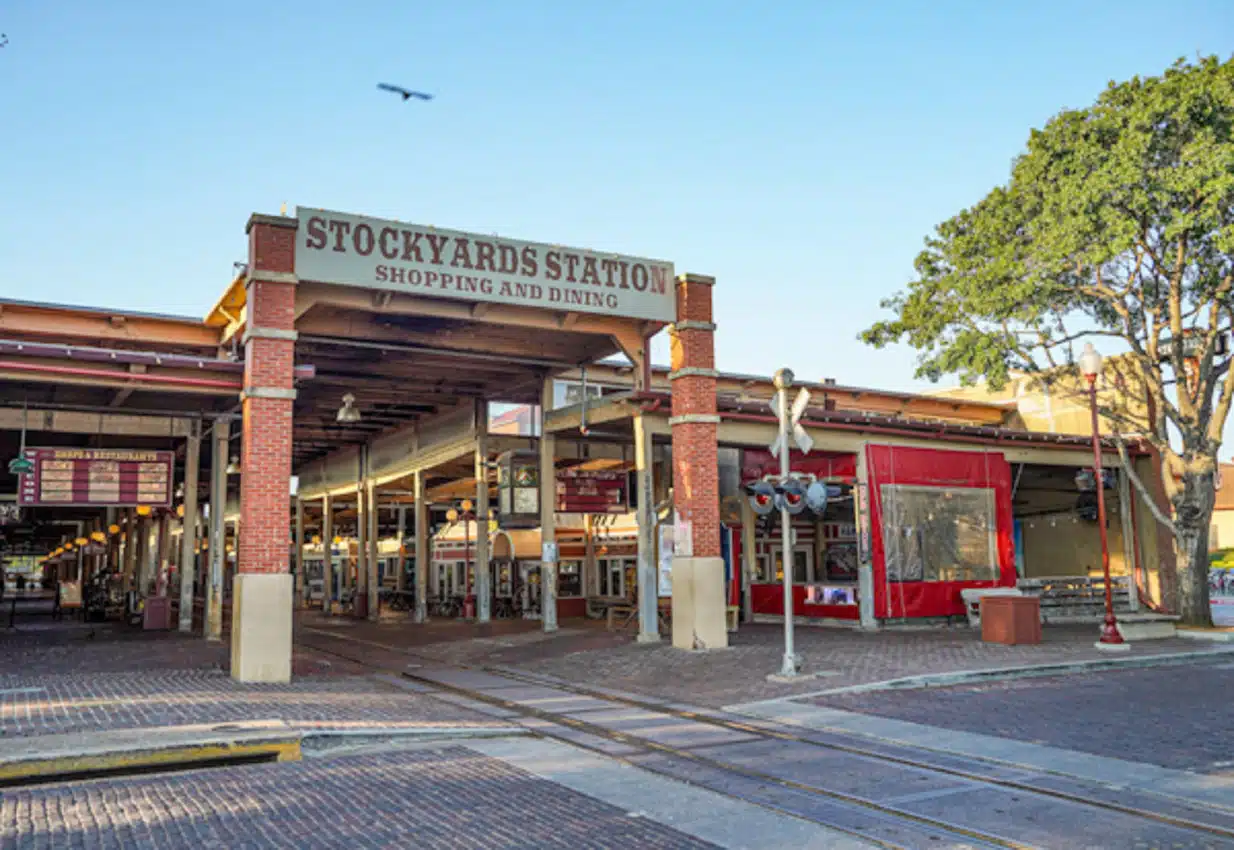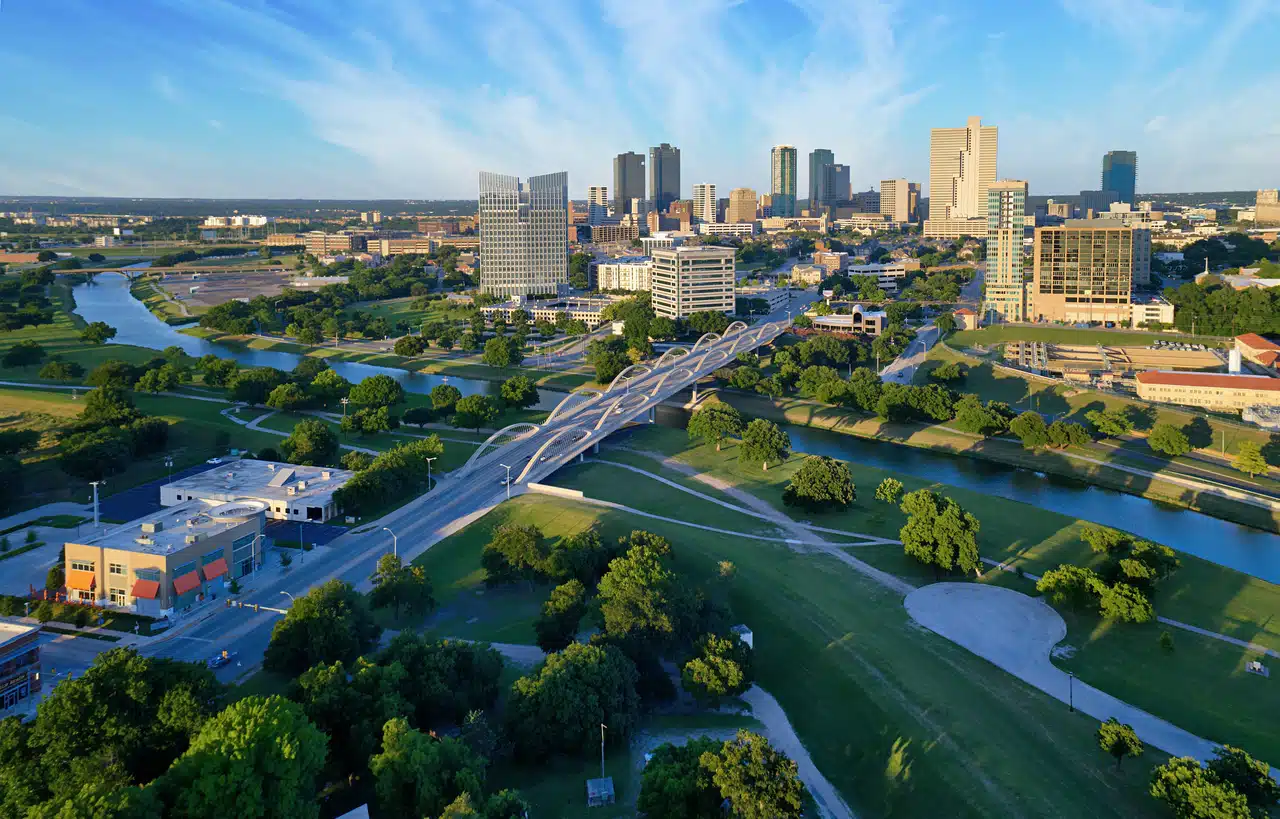What if the best parts of Texas weren’t in Austin, Houston, or Dallas? What if they were a little farther west, past the glass towers and tech startups, where cowboy culture meets modern momentum?
That’s the bet more than 23,000 people made last year when they moved to Fort Worth. Some came from across the Metroplex. Others are moving to Texas from other states. What they found was a city with a lower cost of living, a deep sense of pride, and just enough grit to keep things interesting.
This guide breaks down everything you should know before moving to Fort Worth, from the best places to live in Fort Worth to the city’s economy, housing market, safety, and local highlights. We’ll also cover fun things to do in Fort Worth and weigh the real pros and cons of living in Fort Worth, Texas, to help you figure out if this city (and the cowboy hat that inevitably comes with it) fits your style.
Living in Fort Worth: Quick Facts
While Fort Worth has a character all its own, it’s also part of the larger Dallas–Fort Worth Metroplex — home to more than 7.5 million people. That means living in Fort Worth gives you access to all the perks of a major metro area: world-class dining, pro sports, international travel, and career opportunities — without the steeper price tags you’ll find in Dallas proper and with a slower, more small-town feel.
These quick facts will give you a feel for the city: who lives here, what it costs, and why so many people are making the move.
Population: Approximately 1,008,106 residents as of 2024
Median Age: 33.4 years
Unemployment Rate: 3.8%
Cost of Living: Approximately 4% lower than the national average, with housing costs about 14% less than the U.S. average.
Median Household Income: $76,000 per year.
Average Home Value: $340,000, experiencing a 3% increase over the past year.
Average Rent: $1,424 per month.
Fun Fact: Infamous outlaws Bonnie and Clyde once hid out at the Stockyards Hotel during their 1930s crime spree.

8 Things To Know About Living in Fort Worth, Texas
Let’s break down what living in Fort Worth, Texas, really means, starting with how far your money will go.
1) The cost of living in Fort Worth, Texas, is lower than in most major cities
Fort Worth is more affordable than many of the cities people are leaving behind. The cost of living in Fort Worth, Texas, is about 4% below the national average, with housing costs roughly 14% lower.
Comparing Dallas vs. Fort Worth, the latter comes out ahead; the cost of living is 5.6% lower in Fort Worth. If you’re making $100,000 a year in Dallas, you’ll need to make about $94,395 in Fort Worth.
2) Fort Worth’s weather swings from blazing summers to mild winters
Fort Worth has a humid subtropical climate, which means long, hot summers and short, mild winters. From early June through mid-September, daily high temperatures typically exceed 90°F, with August peaking around 97°F on average. Nights don’t offer much relief either: summer lows often stay above 75°F.
But winter is brief and manageable. January, the coldest month, usually brings highs around 56°F and lows near 37°F. Snow is rare and short-lived.
3) Crime rates vary widely across Fort Worth neighborhoods
Is Fort Worth, Texas, safe? the honest answer is that it depends on where you live. On the whole, Fort Worth’s crime rate is 38% higher than the national average. But like most large cities, those numbers vary a lot by neighborhood.
Safest neighborhoods in Fort Worth
Arlington Heights: This area combines residential charm with access to shops, parks, and dining. It’s walkable, well-kept, and ranked as one of the city’s safest.
Far Northwest: Low population density and quiet streets make this suburban corner of Fort Worth a consistently low-crime zone.
Far North: Known for newer developments and strong community ties, Far North has some of the lowest crime rates in the metro area. (source)
Most dangerous neighborhoods in Fort Worth
Downtown: Despite its growth and cultural appeal, downtown Fort Worth still struggles with a higher rate of assaults and break-ins.
Southside: This neighborhood has seen revitalization in recent years, but still reports crime rates well above the city average.
South East Fort Worth: Property crime and theft remain a concern here, especially in denser residential pockets. (source)
But anyone considering a move should take time to explore the area, check recent crime stats, and get a feel for the block, not just the zip code.
Planning a move? Use our moving checklist so you don’t miss any important steps. |
4) The Fort Worth housing market has grown more competitive
Fort Worth used to be a hidden gem for homebuyers. That’s no longer the case. A growing population and steady demand have made the Fort Worth housing market more competitive in recent years. Home values have risen about 3% year-over-year, with the average price now around $340,000.
Even with rising prices, living in Fort Worth, Texas, is still more affordable than in places like Dallas, Austin, or Houston. And that’s part of the draw. People moving here from bigger cities often find they can afford more space, a yard, or a newer home, all without stretching their budget too thin.
5) Rental prices in Fort Worth offer more space for your dollar
Rents in Fort Worth are still within reach for most budgets. As of 2025, the average apartment goes for $1,424 a month. That’s below the national average, so you’re saving money and getting more space for it. Most rentals come in around 875 to 900 square feet.
The lower cost of living in Fort Worth, Texas, is a big reason the city continues to grow. For renters priced out of bigger metros or tired of paying too much for too little, Fort Worth offers something different.

6) Fort Worth’s job market is growing, but how much do you need to earn?
The job market in Fort Worth is holding strong. As of early 2025, the unemployment rate is sitting around 3.8%, slightly below the national average. Job growth has been steady, especially in industries like healthcare, aerospace, logistics, and energy. Major employers like Lockheed Martin, Texas Health Resources, and American Airlines HQ continue to anchor the region.
The average salary in Fort Worth is about $55,900 a year. That’s decent, but it won’t stretch as far as it used to. So let’s get to the real question: What salary do you need to live in Fort Worth, Texas? According to the MIT Living Wage Calculator, a single adult with no children would need to make around $42,370 just to meet basic needs. To live comfortably, though — think savings, some spending, maybe the occasional getaway — you’re looking at closer to $96,400. That leaves a noticeable gap between average salaries and cost of living.
7) These are the best places to live in Fort Worth for every lifestyle …
Fort Worth is full of neighborhoods with their own pace, personality, and perks. Here’s what to look for, depending on your own personal needs:
Best for families: South Lake
Southlake is family-friendly and family-focused. With top-rated public schools, including the nationally recognized Carroll ISD, and a strong reputation for safety, it’s one of the most sought-after suburbs in the metro area. You’ll find spacious homes, clean parks, and a lively town square. The pace is calm without being dull. (source)
Best for young professionals: Arlington Heights
Arlington Heights sits just south of Camp Bowie and west of Montgomery Street, putting you minutes from downtown, the Cultural District, and West 7th. The neighborhood has a classic Fort Worth feel, with bungalows, big oaks, and neighbors who say hi. You’ll find bars, coffee shops, and taco joints tucked along Camp Bowie, plus quick access to museums — the Modern and the Kimbell. For young professionals who want a walkable spot with some character and a solid mix of quiet and buzz, Arlington Heights is a smart pick.
Best for retirees: Pantego
Pantego sits just west of Arlington and covers less than one square mile. It feels quiet but not remote. The streets stay calm, and most homes are single-story with big yards and mature trees. Bicentennial Park offers paved walking paths, open space, and community events. The population skews older, and many residents have lived there for decades. Grocery stores, pharmacies, and hospitals are all nearby. (source)

8) There’s no shortage of fun and uniquely Fort Worth things to do
Fort Worth delivers a range of unique experiences. This is a city where you can see a cattle drive before lunch, wander through a Monet exhibit in the afternoon, and catch live music on a patio by nightfall.
It’s got grit, charm, and a surprising amount of range. If you’re looking for ways to soak it all in, start with these local favorites:
Watch the twice-daily cattle drive in the Fort Worth Stockyards.
Explore the waterfalls and quiet pools at the Fort Worth Water Gardens.
Walk through koi ponds and teahouses at the Fort Worth Japanese Garden.
Check out repurposed shipping containers and local makers in the Design District.
Hike native prairie trails at Tandy Hills Natural Area.
See historic warbirds at the Fort Worth Aviation Museum.
Tour 1800s log cabins and blacksmith demos at Log Cabin Village.
Catch a Broadway show or symphony at Bass Performance Hall.
Visit world-class museums in the Cultural District, like the Kimbell and the Modern.
Pros and Cons of Living in Fort Worth, Texas
For all of its charms, like any place, this city is not perfect. Here’s a quick look at the pros and cons of living in Fort Worth, Texas, based on everything we’ve covered so far.
Pros of living in Fort Worth
The cost of living in Fort Worth, Texas, is lower than in most major U.S. cities.
The city offers a wide range of housing options for buyers and renters.
There are plenty of fun things to do in Fort Worth, from rodeos to museums.
The job market is strong in industries like aerospace, healthcare, and logistics.
Cons of living in Fort Worth
Summers in Fort Worth are extremely hot, with long stretches above 100°F.
The housing market has become more competitive, with prices rising year over year.
Public transportation is limited compared to other large metro areas.
Crime rates in some neighborhoods are higher than the national average.
Thinking About Moving to Fort Worth?
Fort Worth has a lot going for it. Lower home prices, a growing job market, and a real sense of identity set it apart from bigger, flashier cities. You’ve got space to breathe, tacos on every corner, and a city that still feels like a community.
If you’re into vibrant neighborhoods, job opportunities that don’t come with sky-high rent, and fun things to do in Fort Worth on any given weekend — and you don’t mind the heat or the occasional traffic jam — moving to Fort Worth might be the right call. Colonial Van Lines can help you make the leap. With over 50 years of experience in long-distance moving, we know how to get you from wherever you are to where you want to be. Get started with a free quote.

